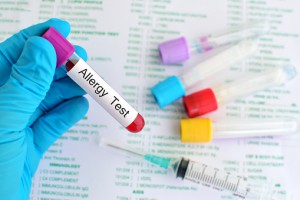Sutures (also known as stitches) have been around for thousands of years and are used to hold wounds together until the healing process is complete. They were first described as far back 3000 BC in ancient Egyptian literature. For centuries they were made from plant materials like hemp, or cotton or animal material such as tendons, silk, and arteries. The material of choice for many centuries was catgut, a fine thread woven from sheep intestines.
In the 1800’s it became apparent that it was a good idea to sterilize the catgut before using it to suture wounds, In the 1860’s the physician Joseph Lister devised a technique for sterilizing catgut and it was perfected finally in 1906. Eventually, sterilization took place by exposing the suture material to radiation which was more effective than previous techniques. Each development helped to reduce the risk of infection.
Early in the 20th century synthetic materials were developed that could be used for suturing. These synthetic materials, still used today, were categorized as “absorbable” or ‘non-absorbable’ depending on their ability to be absorbed during the wound healing process.
Absorbable sutures usually dissolve anywhere from 10 days to eight weeks and are made from:
• Silk
• Catgut
• Polyglycolic acid
• Polylactic acid
• Monocryl
Non – absorbable sutures don’t dissolve naturally and are usually removed after the wound has closed. They are made from:
• Nylon
• Polyester
• Stainless steel
• PVDF
• Polypropelene
Additional new technology has added laser technology and surgical glue to the tools available to physicians for wound healing. These new materials help the process go quicker and also make the scars less visible. However, even with all the new modern techniques for suturing a wound, many of the basic concepts used today were first developed thousands of years ago.
All content of this newsletter is intended for general information purposes only and is not intended or implied to be a substitute for professional medical advice, diagnosis or treatment. Please consult a medical professional before adopting any of the suggestions on this page. You must never disregard professional medical advice or delay seeking medical treatment based upon any content of this newsletter. PROMPTLY CONSULT YOUR PHYSICIAN OR CALL 911 IF YOU BELIEVE YOU HAVE A MEDICAL EMERGENCY.


